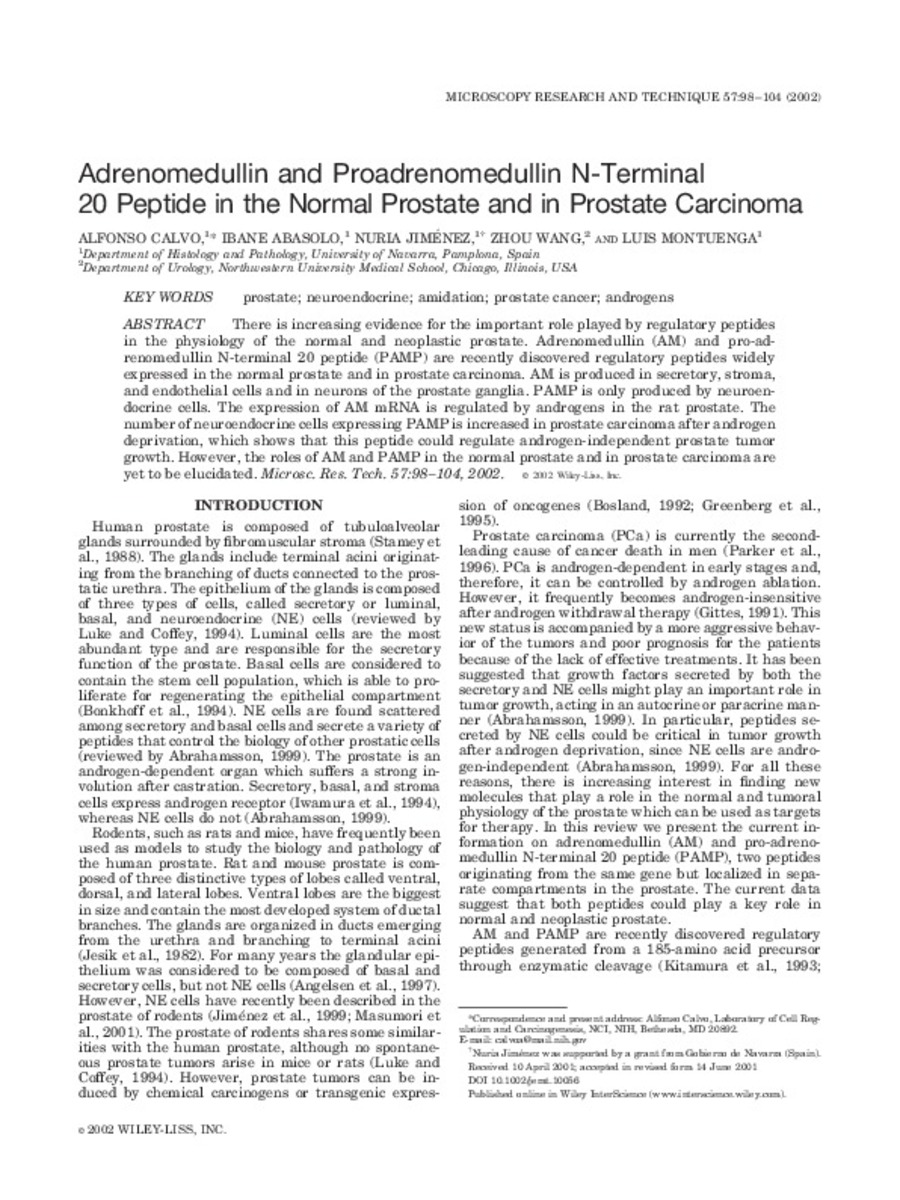Adrenomedullin and proadrenomedullin N-terminal 20 peptide in the normal prostate and in prostate carcinoma
Palabras clave :
Prostate
Neuroendocrine
Amidation
Prostate cancer
Androgens
Fecha de publicación :
2002
Editorial :
Wiley Blackwell
Cita:
Calvo A, Abasolo I, Jimenez N, Wang Z, Montuenga L. Adrenomedullin and proadrenomedullin N-terminal 20 peptide in the normal prostate and in prostate carcinoma. Microsc Res Tech 2002 Apr 15;57(2):98-104.
Aparece en las colecciones:
Estadísticas e impacto
0 citas en

0 citas en

Los ítems de Dadun están protegidos por copyright, con todos los derechos reservados, a menos que se indique lo contrario.










